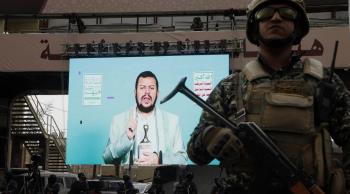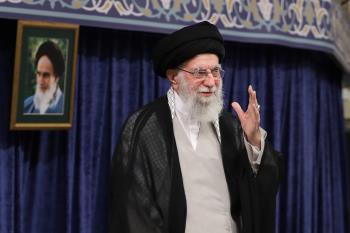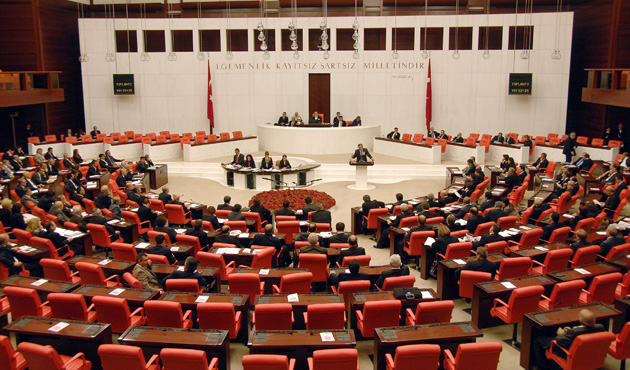Alwaght- The Turkish internal security package was debated in the country's parliament. This resulted in the prominence of disputes between government and opposition members of Turkish parliament. The Turkish Prime Minister, Ahmet Davutoglu, thinks that this law will be voted for whatever circumstances, and will be implemented, because this law is a national project that should be applied. At the time, that the objecting parties exhibited a strong disagreement towards some of the laws mentions in the list. The Turkish opposition parties – led by the Turkish People's Democratic Party – expressed their objection against the entire list of laws. They also threatened that in case the Turkish government adopted the list of laws, the Kurdish conflict in Turkey will be in much predicament. Moreover, the Turkish representatives claimed that what is presented in the law package by the Justice and Development Party (AKP) is consistent with the Turkish Constitution. This law package transfers the judicature authorizations to the police and the government. The objectors say that there is no government where the police arrests people and searches them, their cars, and their personal belongings without returning to the judicature. In a state ruled by law, concerning fighting terrorism and maintaining social order, the police's scope, responsibilities, and powers are limited, and cannot violate personal rights and liberties .
From this perspective, it seems that if the bill is to be approved, it will have damaging impact on certain approaches in Turkey, among which is the negotiations with Turkey's Kurds .
The fore coming is an overview of the most contentious points in the package and after that, we will discuss the various points of views especially those concerned with Kurdish issues .
The Turkish internal security bill will amend certain laws and resolutions of internal security duties and powers of the police, the functions, and responsibilities of the Gendarmerie General Command, population law services. The Turkish government led by the Justice and Development Party (AKP) passed the bill after the deadly pro-Kurdish demonstrations that rocked the country in October. Almost forty died during those protests, which erupted over Ankara's refusal to aid the Kurdish defenders of Kobani, a Syrian border town besieged by fighters with ISIS terrorist group. The Turkish government claims that the new measures come in the context of emphasizing civil order .
According to the internal security bill, the police will be authorized to :
- Usage of a neutralizing force against individuals who attack or who are preparing to attack the police by using Molotov cocktails, explosives, flammables or any other weapon is considered a crime. Those who commit this crime are to be sentenced imprisonment from two years six months up to six years .
- Imprisonment from three to five years for wholly or partially covering the face to hide one's identity. If protesters carry weapons or apply violence, the minimum term applied would be four years .
- Imprisonment from six months to three years for participating in protests with emblems, banners or uniform-like clothing of illegal organizations .
- The bill gives the police the right to detain a person, if it deems the situation as in flagrante delicto. Officers will be able to keep him or her in custody for 24 hours without seeing a judge .
- The custody period will be extended to 48 hours by the governor .
- Material damage to public property will be collected from the perpetrators .
- A police chief who is assigned by the highest administrative chief, such as the provincial governor, will be able to order a strip search or a car search. Judges and prosecutors will be bypassed at this stage .
- The police will be able to use firearms against those who "use or attempt to use Molotov cocktails, as well as explosives, inflammables, incendiaries, suffocating devices, or injurious or similar arms ."
- If banners, posters, photographs, plates, tools, were used in protests or chanting slogans or audio broadcasting, those who commit this crime are to be sentenced imprisonment from six months up to six years .
- If the police found that someone's personal safety is jeopardized by others, if their measures do not lead to a different crime, the person who is under threat will be protected by the police and taken away from the accident site .
- The police are allowed to use colored water in order to arrest individuals and disperse demonstrations and protests .
- Using internet and social media services to call for protests and demonstrations is considered a crime .
- Monitoring Commission will be established in which NGO and private institutions will participate to monitor the duties and authorities of the police .
- Parliamentary Commission for monitoring and controlling the intelligence communication will be established and all political parties will participate in the Commission .
The internal security package and the Kurdish conflict
The internal security package is now also threatening the peace and settlement process that has been under way for more than two years between Ankara and the Kurdish movement. In a Feb. 17 statement, the co-chairs of the Kurdistan Communities Union, the top body of the Kurdish political movement, said, “The AKP may keep bragging about ‘democratization, the process, and negotiations,’ but, as the internal security package clearly shows, this is all demagogies. It has become obvious that this mindset — closed to democracy, settlement, and negotiation — will take no steps for Turkey’s democratization and the resolution of the Kurdish problem .”
In remarks made the same day, HDP co-chair Selahattin Demirtas said, “The package is destroying not only the settlement process, but all dynamics of social peace. It is damaging the peace process and undermining all efforts at peace in society. One cannot speak of peace in a place where the opposition is being crushed .”
From the Kurdish parties' point of view, the ruling Justice and Development Party (AKP) is the main obstacle. If a joint statement is to be issued, it will the joint statement of the Democratic People's Party (HDP) and the ruling Justice and Development Party (AKP) and not the joint statement of Kandil (the military wing of the PKK) and Aymraly (Abdullah Ocalan . ) .
If the ruling Justice and Development Party (AKP) did not take any measures to "resolve the Kurdish conflict," before the parliamentary elections in Turkey, the settlement of the Kurdish conflict will be faced with challenges .



























